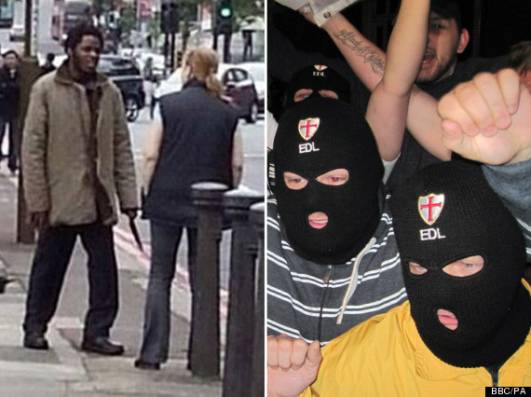One thing I think the whole tragedy has highlighted is that the word "terrorism" has really cemented itself in our society and political consciousness.
What I find interesting is how quickly the media jumped to use the word "terrorism".

Yes, the crime was committed for religious or political purposes, and was designed to create fear - and as such should be defined as terrorism. But I do wonder how much the perpetrators' ethnic background and religion had to do with the reporting of the incident.
Straight after the incident, there were several attacks on mosques and Islamic centres around the country. One of them involved masked men throwing petrol bombs at a building.
It could be argued that these acts were politically and religiously motivated, involved the word "bombing", and were designed to cause fear and distress amongst the Muslim community.
However, when the men involved were arrested three days later, they didn't make any major headlines and were charged with arson, not terrorism.
Psychos and extremists can be found in every single demographic.
I think using the word 'terrorist' and applying terrorism laws only when the offender is an Islamic extremist smacks of hypocrisy and only goes to serve the political purposes of those masterminding the attacks.